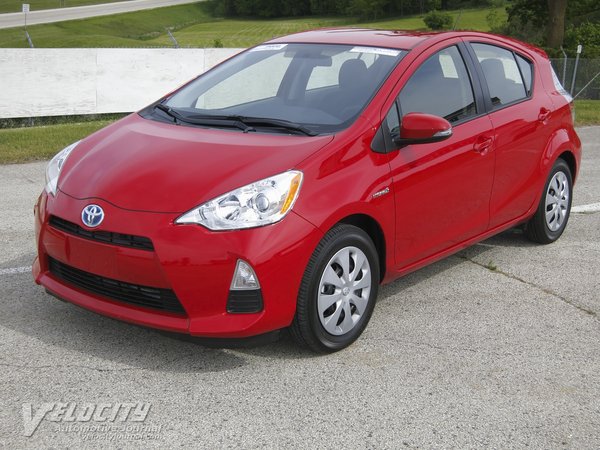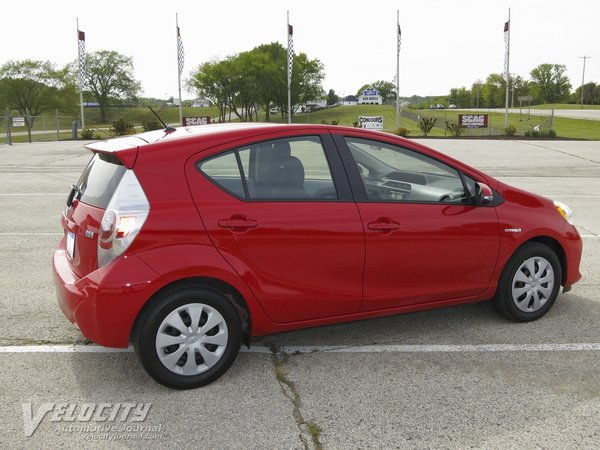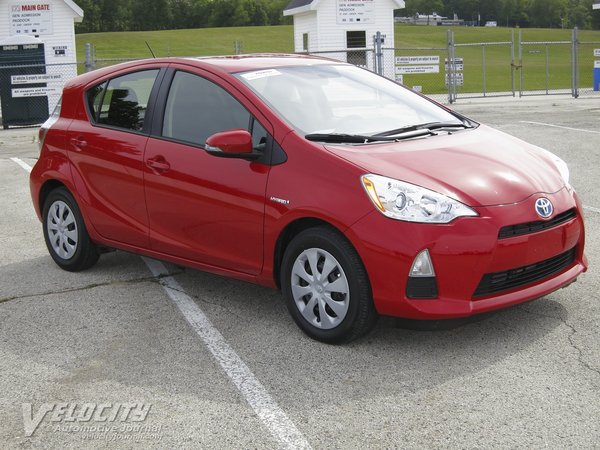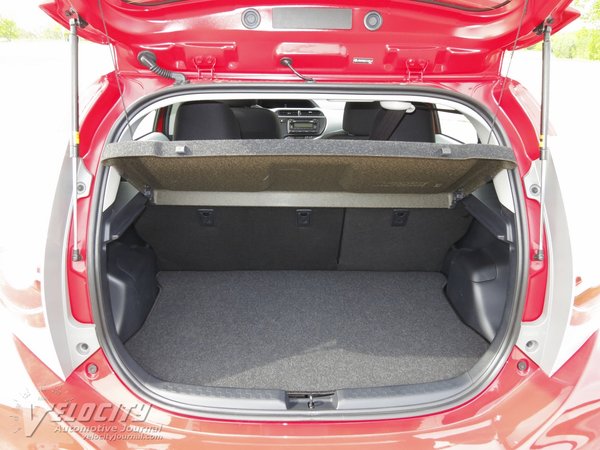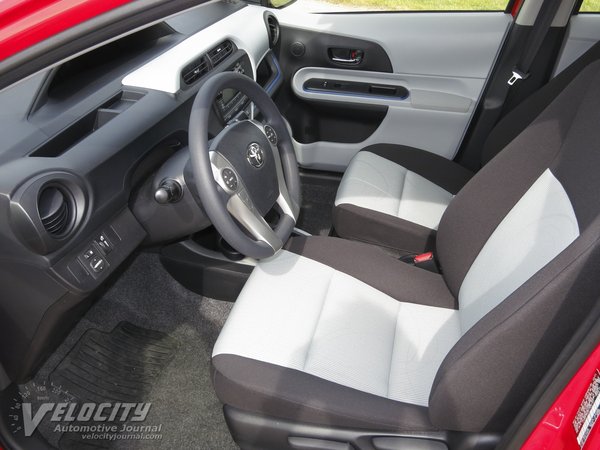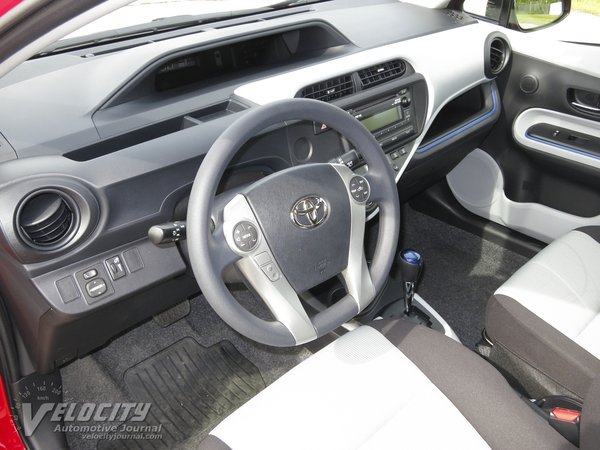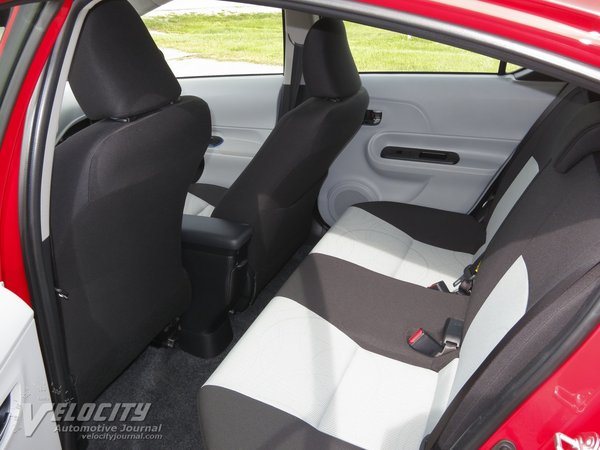First Drive: 2012 Toyota Prius c
05/23/2012
Shahed Hussain
As Toyota expands the Prius brand, the new Prius c slots below the popular Liftback as the entry model of the hybrid lineup. Available in four numeric trim levels, the Prius c ranges in price from $18,950 to $23,230. Prius c Three and Four models offer available alloy wheels, power moonroof, navigation, and Toyota's Entune infotainment system. We drove a basic Prius c Two (MSRP $19,900), equipped with cruise control, Bluetooth, 6-speaker audio system and split folding rear seats.
Aside from small logos near the front doors, the Prius c gives little indication of its hybrid powertrain. Instead of a pushbutton start, there is a conventional key. The transmission shifter is on the center console, just like a typical non-hybrid subcompact. A digital speedometer, bar graph fuel level, and hybrid powertrain status display show essential information. The trip computer display also shows estimated fuel cost along with distance, elapsed time, and fuel consumption.
Predictably, interior trim is mostly hard plastic, which leaves no doubt that this Toyota is primarily aimed at customers who prize fuel efficiency over all else. Supportive cloth seats offer decent lateral support and overall comfort. Rear accommodations provide adequate legroom, but headroom is insufficient for taller passengers.
All Prius c models are powered by a 1.5L inline-4 rated at 73-bhp @ 4,800 RPM and 82 lb.-ft. @ 4,000 RPM. The electric motor supplies another 60 bhp (45kW) for a maximum total system output of 99 bhp. Because the electric motor and gasoline engine have different horsepower curves, the total power is not the sum of the peak power ratings. A CVT (Continuously Variable Transaxle) sends power to the front wheels. EPA fuel economy ratings are 53/46 MPG (city/hwy.), surpassing even the Prius Liftback in the city. Curb weight of the Prius c is only 2,500 lbs., a significant 542 lbs. less than its larger sibling.
To reduce fuel consumption, the gas engine shuts off when stopped, and starts automatically as needed. Easing into the throttle from a stop allows the electric motor to get the Prius c rolling before the engine kicks in. The transition from EV mode to gasoline power is seamless as the engine fires up and smoothly accelerates the Prius c to highway speeds. Throttle response is surprisingly eager at low speeds due to the 125 lb.-ft. of available torque from the electric motor, but the gasoline engine's meager 82 lb.-ft. results in merely adequate midrange acceleration.
As is typical among subcompacts, the front suspension consists of MacPherson struts, coil springs, and a stabilizer bar. At the rear is a torsion beam layout with coil spring and dampers. Brakes are front discs and rear drums with ABS, TRAC (traction control), and VSC (Vehicle Stability Control). Standard steel wheels are shod with Bridgestone Turanza EL400 tires. The rack-and-pinion steering system has electric power assist.
Aided by its low curb weight, the Prius c has nimble handling and sharp turn-in response. Decent road feel through the steering wheel is a pleasant surprise. Ride comfort is better than expected, no doubt aided by the longer than average 100.4 in. wheelbase. Even so, the relatively firm suspension tuning results in a jittery ride over bumpy roads.
As the latest addition to Toyota's hybrid lineup, the Prius c is a nearly ideal for commuters looking for extreme fuel-efficiency at an affordable price point. As a bonus, the smallest Prius is actually fun to drive, truly rare for a hybrid. However, its singular focus on minimal fuel consumption ensures that the Prius c remains a niche vehicle with limited appeal.

